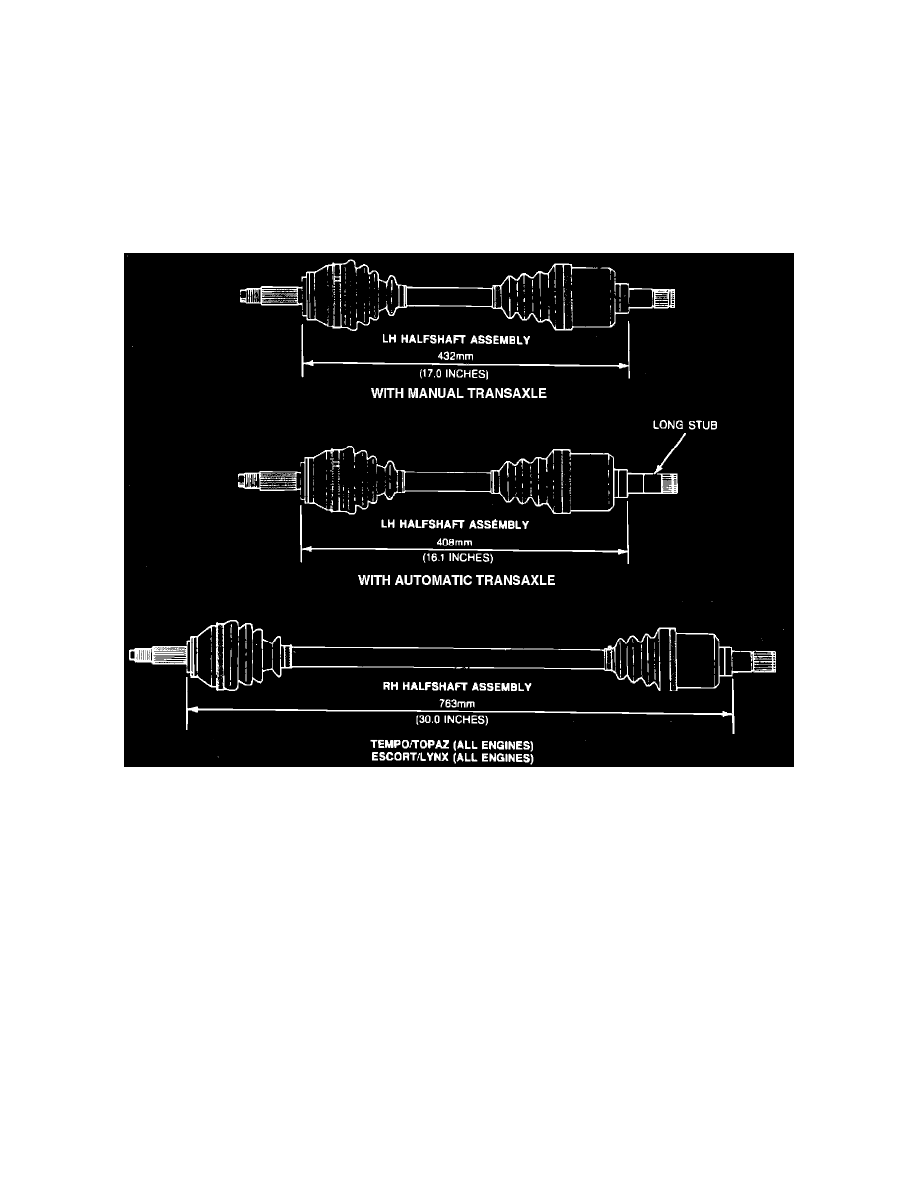Tempo V6-182 3.0L (1993)

shaft end and into groove.
NOTE: These non-symmetrical interconnecting shafts are different depending on application. The outboard end is approximately 1/4 inch longer
from end of shaft to end of boot groove than the inboard end. Be sure to install inboard and outboard joints at proper ends of the shaft.
3.
Install constant velocity joint boot, if removed, ensuring that boot is seated in groove. Tighten clamp so that it's secure but not too tight.
4.
Before positioning boot over constant velocity joint, pack joint and boot as follows:
a.
On inboard constant velocity joint, fill boot with 45 grams of grease and pack joint with 90 grams of grease.
b.
On outboard constant velocity joint, fill boot with 45 grams of grease and pack joint with 45 grams of grease. Use only lubricant
E2FZ-19590-A or equivalent.
5.
Position boot upward toward end of shaft, then position constant velocity joint onto shaft and tap into position using plastic mallet. Joint is fully
seated when circlip locks in groove cut into joint bearing inner race. Check for proper seating by trying to pull joint from shaft.
Halfshaft Assembled Lengths
6.
Remove all excess grease from external surfaces of constant velocity joint, then position boot over constant velocity joint and move joint in or out
to adjust to proper length.
7.
Before installing boot clamp, insert dulled screwdriver blade between boot and outer bearing race to allow trapped air to escape.
8.
Ensure that boot is seated in groove, then install clamp securely but not too tight.
